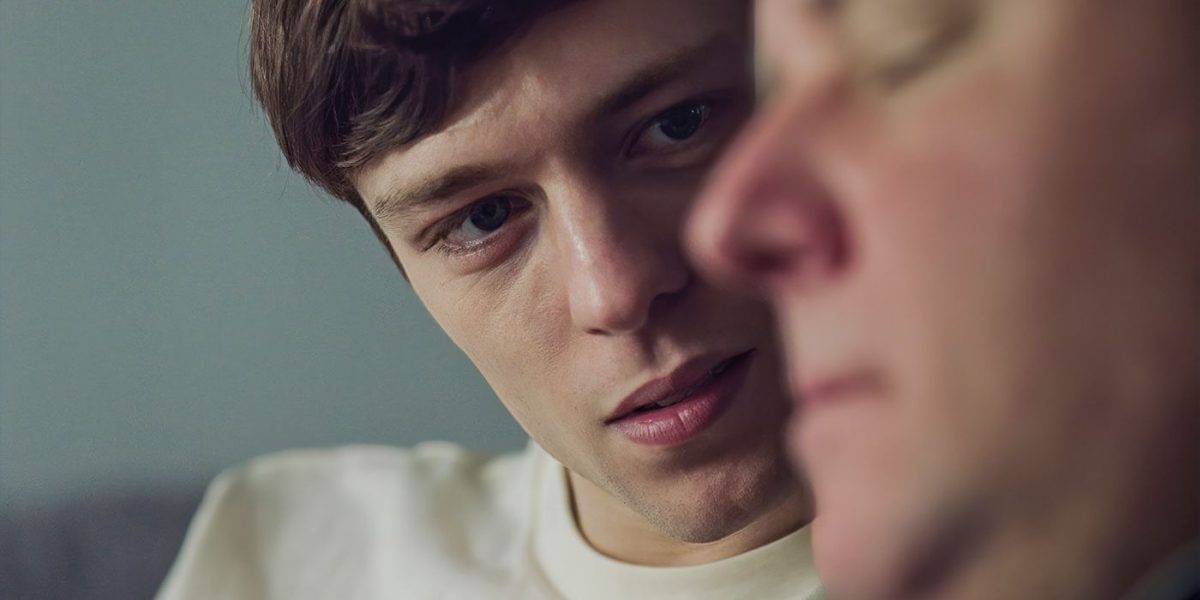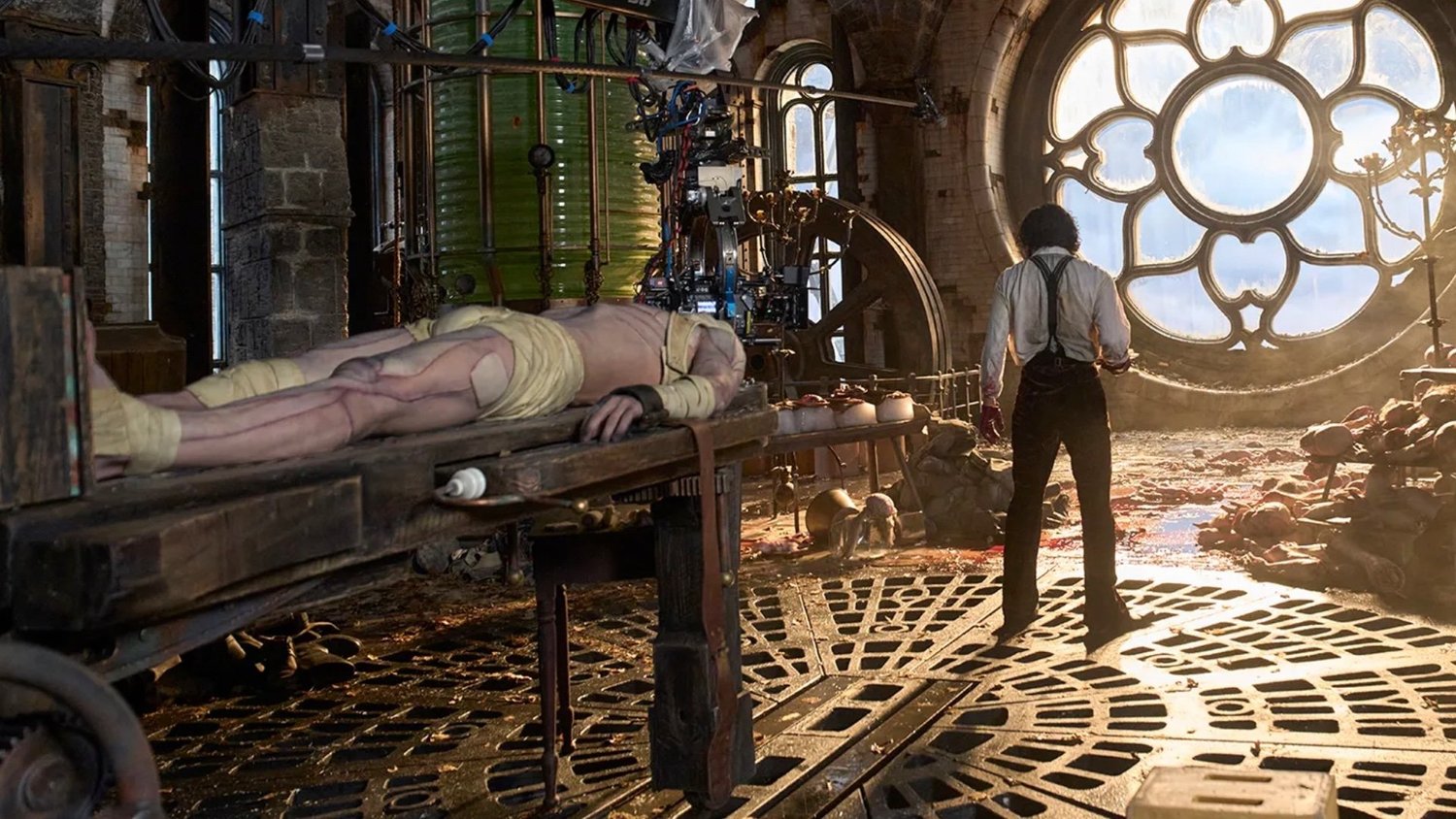
A Modern Dive Into an Ancient Taboo
Jan 23, 2024
The Big Picture
Sebastian explores the complexities of identity and the relationship between different generations of queer people. The film fails to deliver on its intriguing premise due to a weak protagonist. Sebastian shies away from its strongest storyline, leaving important themes unresolved and lacking meaningful commentary.
Writing can be a personal, vulnerable thing, and your identity can heavily influence both what you write and how other people react to it. American Fiction explores this point masterfully from a Black perspective, and Mikko Mäkelä’s Sebastian attempts to cover similar ground from an LGBTQ+ one. It also takes on another complicated and somewhat taboo topic, throwing sex work into the mix. But does it achieve its goals?
Sebastian (2024) Max, a 25-year-old aspiring writer living in London, begins a double life as a sex worker in order to research his debut novel. Release Date January 21, 2024 Director Mikko Makela Cast Ruaridh Mollica , Hiftu Quasem , Ingvar Sigurdsson , Jonathan Hyde Runtime 110 minutes
What is ‘Sebastian’ About?
Sebastian revolves around Max (Ruaridh Mollica), a gay man in his mid-20s trying to make it as a writer in London. By day, he freelances at a magazine, writing reviews and conducting interviews. Though he’s had success with his articles and collection of short stories, what he really wants to do is write a novel — one about being a modern queer sex worker.
Though Max tells everyone he’s conducted extensive research about the profession by talking to real sex workers, the truth is that he is one himself. Not only does he use his alias of Sebastian to find usually older, usually wealthy men to service, but he transcribes the exchanges he has with these men nearly word-for-word in his fiction. Though he quickly finds a publisher who loves his pages, Max grows uncomfortable with the suggestion that he change the novel from third person to first and write it as a pseudo-memoir.
Max finds himself living something of a double life, and it’s interesting to find him torn not only between two worlds but two passions as well. Yes, the sex work helps Max supplement his income (which isn’t much as a writer), but he genuinely enjoys the work. He has ambitions of dominating the prestigious, buttoned-up literary world, but he also feels empowered when he’s with his clients. The film naturally raises questions about identity, how society views sex work, and the ethics of blurring reality and fiction without the knowledge or consent of those about whom you’re writing.
‘Sebastian’ Can’t Escape Cliché
“I do realize it’s a stock character of queer literature,” Max says as he pitches his novel. And he’s right — LGBTQ+ people are often depicted as sex workers in media. Sebastian attempts to give it a fresh perspective by giving Max a different motive to do what he does, and while it’s admirable to subvert the reasons we’ve seen time and time again (such as being forced to do it for financial independence separate from unsupportive or abusive situations), the stakes feel virtually nonexistent for the majority of the film. The film makes the puzzling choice to already have Max doing sex work when we meet him rather than us seeing the catalyst for him participating. In turn, we meet Max as he enjoys doing two things he feels can’t co-exist, struggling to keep both sides separate and secret like a grown-up Hannah Montana. And while it’s refreshing to see sex work in a more positive, unstigmatized light, the conflict we’re left with isn’t particularly compelling.
There’s an interesting movie hiding in here that we catch glimpses of. The idea of technology — the rise of OnlyFans and the use of Instagram to boost book sales, for instance — is brought up but never delved into. At one point, it’s mentioned that Max feels shame about feeling shame for what he does, but the film also fails to explore that in a meaningful, engaging way. We see Max’s worlds collide or threaten to a few times, with one such time being a highlight of the film, with intense music and camerawork that makes the film skirt close to psychological thriller territory for a moment. But apart from those sparse occasions, Sebastian lacks a real sense of tension or danger. That’s not to say Max needs to be in constant peril or face relentless adversity or that queer characters or sex workers need to or deserve to be exploited or punished — we need more queer joy and sex positivity — but the plot hinges on Max being caught between these worlds. And as it stands, it’s hard to care about what this state of being.
‘Sebastian’s Protagonist Falls Flat
The word “unlikeable” is both loaded and overused at this point, but there’s not much to like about Max. In fact, there’s not much to him at all — not much that we haven’t seen done again and again in countless films and shows, at least. Max doesn’t have much of a personality outside his two jobs and every stereotypical gay man’s hobbies — going to the gym, going to the club, and scrolling apps. He ironically does feel like a stock character of queer media.
In addition to being a rather bland protagonist, Max doesn’t treat the people around him well. He forgets to read his friend Amna’s (Hiftu Quasem) pages even after she takes the time to give him a plethora of helpful feedback on his own work and misses out on a meeting for his magazine job because he’s at a sex party. When he gets a sought-after interview taken away after flaking on the meeting, he’s assigned a different article, which he rudely blows off in order to go be with a client. He’s distracted from his writing because he’s in too deep with his sex work — addicted to being Sebastian to the point he’s sacrificing his dreams as well as organic romantic connections — but this internal strife isn’t executed well. There’s a sense of entitlement and arrogance that makes him difficult to root for.
Sebastian clearly wants to critique the literary world, but Max is the wrong vehicle to do this due to the aforementioned reasons and the fact he simply isn’t that strong of a writer. The passages his critique partners and publisher rave over are littered with cliché metaphors about “water in the desert” and the like. Sebastian attempts to use the fact Max is an author to its advantage, getting ahead of criticisms the audience may have by having the notes he gets on his pages reflect them. For example, he gets the comment that the narrative might start to feel repetitive as Sebastian is sleeping with the same type of men a lot with the same outcome — something we see Max do. It’s clever in theory, but it ends up feeling too on the nose. The film is painfully aware of what kind of story it’s telling, what we may think about it, and how it fits into the overall media landscape, but it does little to convince us that we shouldn’t be thinking such things and struggles to justify its addition to the genre.
The bright spot in Max’s life and in the movie itself is his unconventional relationship with an elderly widowed client named Daniel (Jonathan Hyde). Daniel is lonely, it having been three years since the passing of his long-time partner, and he finds comfort in Max’s company, wanting to get to know him and talk about art and literature. Though originally confused by Daniel’s genuine interest in him, Max grows fond of Daniel, and he becomes more than just a client. Max writes this relationship into his book, interested in bridging the gap between generations of queer people, but the publisher deems it too romantic and not edgy enough, which causes Max to pull away from the plot and Daniel. It’s a pity, as this is by far the most intriguing and authentic dynamic in the film. The way the film ties this up, though sweet, rings hollow, working out too cleanly, as most things in Max’s life seem to.
I’m always rooting for a happy ending with LGBTQ+ narratives. Between the bury your gays trope and the industry’s obsession with conversion therapy tales, we deserve something hopeful and joyful. It’s just unfortunate that Sebastian’s doesn’t feel earned. Max ultimately changes throughout the film, learning to embrace every part of himself, but there are still lessons he hasn’t learned — important ones that the film seems uninterested in helping to teach him.
Sebastian (2024) Though it has an intriguing premise, ‘Sebastian’s weak protagonist drags it down. ProsRefreshingly sex positive Brings up interesting ideas about the relationship between different generations of queer people ConsBland protagonist Doesn?t have anything meaningful to say about its themes Shies away from its strongest storyline
Sebastian had its World Premiere at the 2024 Sundance Film Festival.
Publisher: Source link
TV Shows That Got Canceled In 2024
TV Shows That Got Canceled In 2024 Which 2024 canceled TV show will you miss the most? Share your pick in the comments! Disclaimer: This story is auto-aggregated by a computer program and has not been created or edited by…
Dec 22, 2024
How The Talk Emotionally Ended After 15 Years
The Talk has officially said "Goodbye." After 15 seasons and 2,993 episodes, the CBS daytime show came to an end on Dec. 20 with a heartfelt farewell from hosts Akbar Gbajabiamila, Amanda Kloots, Natalie Morales, Jerry O'Connell and Sheryl Underwood. The episode began with a standing ovation for the…
Dec 22, 2024
Jennifer Lopez Asked About Turning 60, Age
Jennifer Lopez Asked About Turning 60, Age Never ask a woman her age, a man his salary, or Jennifer Lopez how she feels about turning 60. On Sunday, the actor was interviewed by Variety amid the release of her new…
Dec 21, 2024
Lala Kent Shares Text With Ally Lewber After James Kennedy’s Arrest
The BCU (Bravo Cinematic Universe) was shaken on March 3, 2023, when it was confirmed that Tom and Ariana had ended their nine-year relationship amid the revelation that he'd had a seven-month affair with Raquel. "I made mistakes, I was…
Dec 21, 2024











